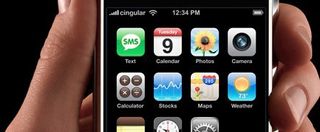Should Cell Phones Be Banned While Driving?

Note: Scroll down to vote
The National Safety Council today called on state and federal lawmakers to ban the use of cell phones and text-messaging devices while driving and also urged businesses to prohibit it.
The nonprofit, nongovernmental group cites studies showing that the practice is as dangerous as driving drunk.
"Studies show that driving while talking on a cell phone is extremely dangerous and puts drivers at a four times greater risk of a crash," said Janet Froetscher, president and CEO of the NSC. "Driving drunk is also dangerous and against the law. When our friends have been drinking, we take the car keys away. It's time to take the cell phone away."
A study from the Harvard Center of Risk Analysis estimates that cell phone use while driving contributes to 6 percent of crashes, which equates to 636,000 crashes, 330,000 injuries, 12,000 serious injuries and 2,600 deaths each year and a tab of $43 billion, according to a statement from the NSC today.
Other distractions
Talking on a cell phone may be less distracting than some other activities people may engage in while driving, Froetscher admits, but she points out that the use of cell phones and texting devices is much more pervasive, making it more dangerous overall.
Sign up for the Live Science daily newsletter now
Get the world’s most fascinating discoveries delivered straight to your inbox.
Studies from the University of Utah show that hands-free devices do not make cell phone calls while driving safe. Another study demonstrates that talking to passengers, as opposed to talking on a cell phone, actually makes adult drivers safer, because passengers help alert drivers to potential driving risks, the NSC stated.
"Talking on a phone while driving is dangerous, period, and our advice to drivers is to simply don't do it," Jonathan Adkins, spokesman for the Governors Highway Safety Association of Washington, DC, said last year. "It taxes the cognitive skills of your brain at the expense of the driving at hand, and if the conversation is stressful your reaction time will not be as quick. Also, whoever you are talking with on the phone does not know what is going on around you, whereas someone in the car talking to you is aware of the circumstances."
John Walls, vice president of CTIA-The Wireless Association, a cell phone trade group, objected to a complete ban, according to the Associated Press.
"We think that you can sensibly and safely use a cell phone to make a brief call," Walls said.
California, Connecticut, New Jersey, New York, Utah, Washington and the District of Columbia ban the use of hand-held cell phones while driving, and 17 states and D.C. restrict or ban cell phone use by young drivers.
Worse than drunk driving
One of the leading researchers in this realm is Frank Drews, an assistant professor of psychology at the University of Utah. His team has done several studies using volunteers who drive simulators while talking on cell phones. In one study, some of the volunteers got drunk first so their reactions could be compared to people who were talking while driving and to a control group that was entirely focused on driving.
"We found that people are as impaired when they drive and talk on a cell phone as they are when they drive intoxicated at the legal blood-alcohol limit," Drews said. In fact, while some of the participants crashed in a virtual vehicle while sober and chatting, none of them crashed while drunk.
<script type="text/javascript" charset="utf-8" language="javascript" src="http://static.polldaddy.com/p/1268405.js"></script><noscript> <a href ="http://answers.polldaddy.com/poll/1268405/" >Should lawmakers ban use of cell phones while driving?</a> <br/> <span style="font-size:9px;"> (<a href ="http://www.polldaddy.com"> surveys</a>)</span></noscript>

